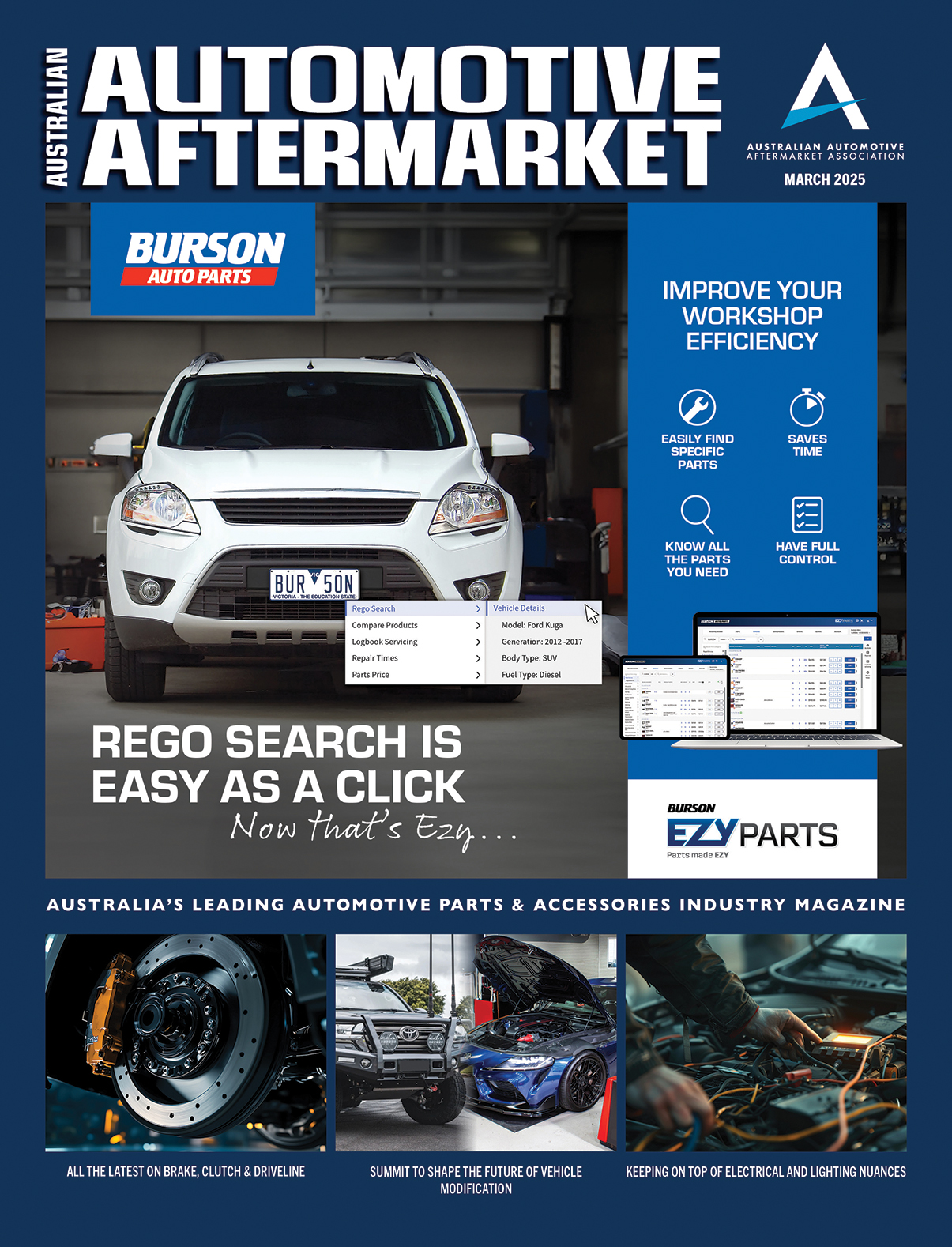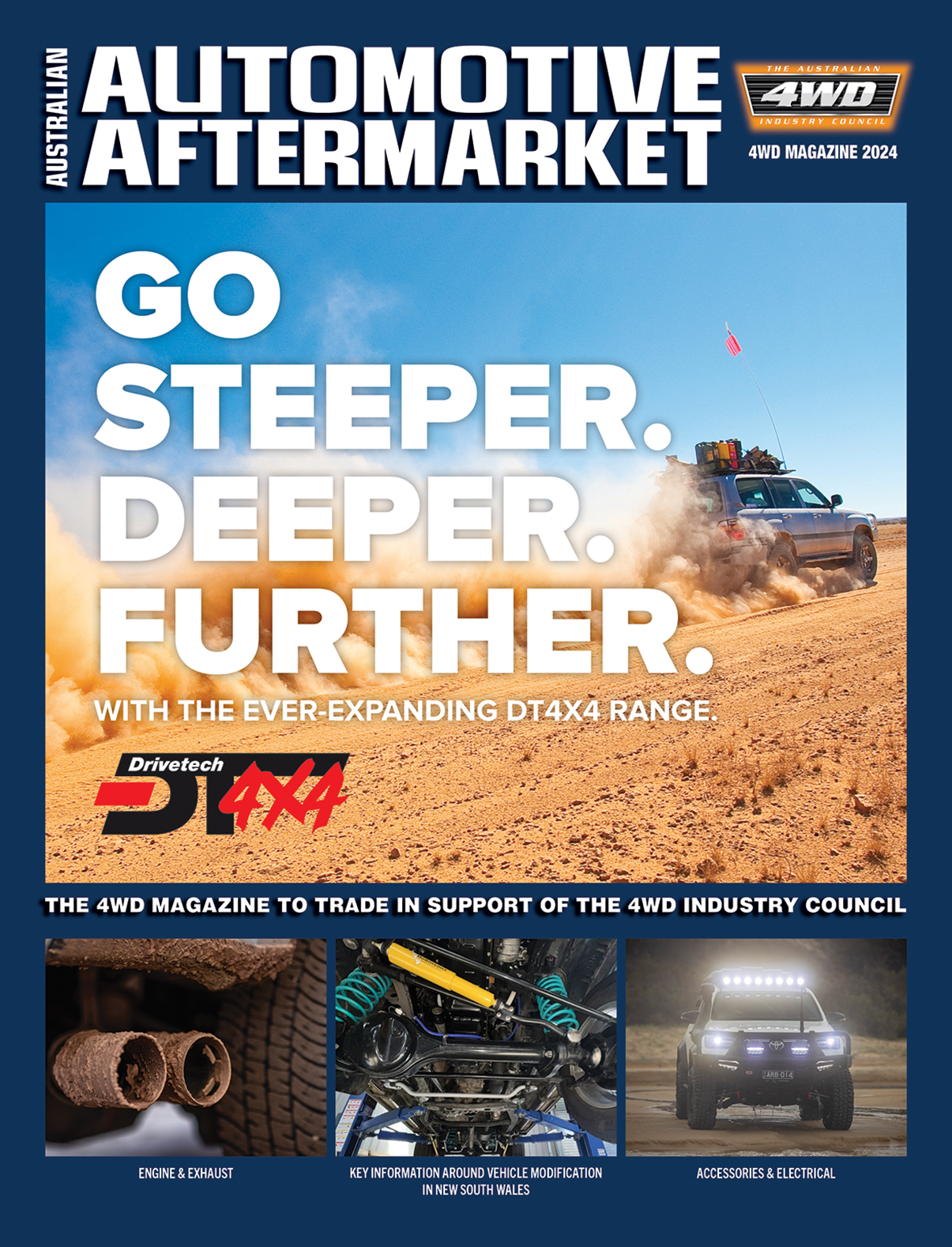TODAY’S TECHNOLOGY ENABLING TOMORROW’S CLIMATE FRIENDLY TRANSPORTATION SECTOR
Commercial vehicles are the backbone of the global economy and the need for transport will continue to grow

The industry must strike a balance between necessary climate protection, global market developments and customer requirements for reliable and affordable transport.
MAHLE says it is broadly positioned with components and high systems expertise for battery electric drives, hydrogen engines, fuel cells and the use of renewable fuels, stating that technological diversity is key to the fast decarbonisation of the global transportation and commercial vehicle sector.
“The wide variety of applications and requirements for today’s commercial vehicles will require an array of technical solutions for sustainable drive systems which are just as multifaceted,” MAHLE Management Board Chairman and Chief Executive Officer, Arnd Franz, said.
The automotive supplier states it is extensively represented with components in all electrified trucks that are currently being launched and is involved in all current major hydrogen engine projects and development projects for fuel cell vehicles.
MAHLE supplies over 120 international commercial vehicle brands in the on- and off-highway sector, with the commercial vehicle segment accounting for about one-fifth of the company’s original equipment business, and the trend points up.
MAHLE expects particularly strong growth in China and at the IAA Transportation international commercial vehicle trade fair in September, the automotive supplier presented its systemic approach to a fuel cell truck: with fuel cell peripherals, thermal management, and a fully functional electric axle with two integrated SCT electric motors.
Other world premieres included a new evaporative cooling system and a bionic fan for demanding fuel cell and electric vehicles.
“Our products are developed, tested and ready for volume production,” Arnd said.
MAHLE says that according to forecasts, purely electric trucks with batteries and fuel cell trucks will account for around 30 percent of global production by 2035.
This means that the internal combustion engine will remain an essential drive system around the world for the foreseeable future.
MAHLE expects that battery-electric drive systems will mainly be used in the medium-duty truck segment and in the heavy-duty truck segment on short-haul routes, while fuel cells and combustion engines, powered by either hydrogen or other renewable fuels, capitalise on their advantages on the long haul.

MAHLE states that it stands for technological diversity and, with its three strategic fields of electrification, thermal management, and highly efficient sustainable combustion engines, “develops the best solutions for every use case worldwide.”
In this way, the company seeks to enable the reduction of the carbon footprint of road freight transport.
The MAHLE SCT electric motor (Superior Continuous Torque) is said to be the company’s endurance champion among electric motors.
MAHLE says its high continuous power and efficiency make it the ideal electric drive for heavy-duty traffic in all-electric trucks and in fuel cell applications.
At IAA Transportation, MAHLE showed a heavy-duty e-axle for the first time, in which two SCT electric motors with a total output of 520 kW as well as the complete liquid management are compactly integrated, demonstrating its systems expertise and the suitability for series production of its innovations.
Together with a fully functional fuel cell, the e-axle, battery cooling and fuel cell peripherals from MAHLE formed its technology exhibit.
“This demonstrates how we can integrate our technologies, including thermal management, into electric vehicles and thus develop and optimise a wide range of options for different customer applications,” MAHLE Vice President Corporate Research and Advanced Engineering, Dr Marco Warth, said.
The conversion of hydrogen into electricity in the fuel cell places high technical demands on the vehicle – particularly with regards to thermal management.
MAHLE says it plays a leading role in this field of technology. Also part of its recent technological exhibit was its evaporative cooling device, presented as a world first at the IAA.
This technology ensures the optimal temperature for fuel cells and offers up to 50 kW more cooling capacity in a given installation space.
This enables a reduction of the required fan performance and reduces hydrogen consumption by up to 1.5 percent.
At the moment, MAHLE says hydrogen is the renewable fuel with the greatest potential to decarbonise the transportation sector.

Several hydrogen engines are currently being tested at MAHLE.
This year, DEUTZ, another engine manufacturer using MAHLE components, will enter series production.
This flagship project will first focus upon stationary engines before expanding to mobile, off-highway applications.
“We are very confident that serially-produced hydrogen engines will enter widespread use as early as this decade,” Arnd said.
But even the most modern and sustainable truck is useless without the right infrastructure.
“We welcome the fact that the EU has set targets for the expansion of charging and refuelling facilities. Still, increased efforts in this sector will be needed to serve a broad fleet of zero-emission vehicles,” Arnd said.
“The member states are now called upon – and we hope that they will go beyond the minimum and accelerate expansion efforts. This will ensure that industry – and, especially, the transport industry – receive the planning security they need.”
Arnd reiterated that, for users to invest in emission-free vehicles, it must make sense economically.
He said legislators, then, should create a framework which allows the market to build climate-neutral drives.
In lieu of meticulous requirements and technological regulations, he said renewable energy sources should be promoted with market-based instruments.
MAHLE says this could be achieved by, for example, taking the effect upon the climate into consideration when levying taxes, tolls or other payments.
Arnd cited synthetic fuels – or biofuels, until synthetic fuels are more widely available – as energy sources which should not be underestimated.
He said these fuels could make an additional contribution to the reduction of carbon emissions in the transportation sector.
Some regions, such as South America or India, are already focusing fully on biofuels. MAHLE also utilises them wherever possible.
For example, in Germany, the company uses the environmentally friendly HVO 100 fuel in its shuttle traffic between the central warehouse in Freiberg am Neckar and its two plants in Vaihingen an der Enz and Mühlacker, saving up to 90 percent carbon in the process. In addition, the Group has converted the approximately 70 diesel vehicles in its fleet in Stuttgart to HVO 100 – reducing annual carbon emissions by up to 250 tons.
For more from MAHLE, visit www.mahle.com









